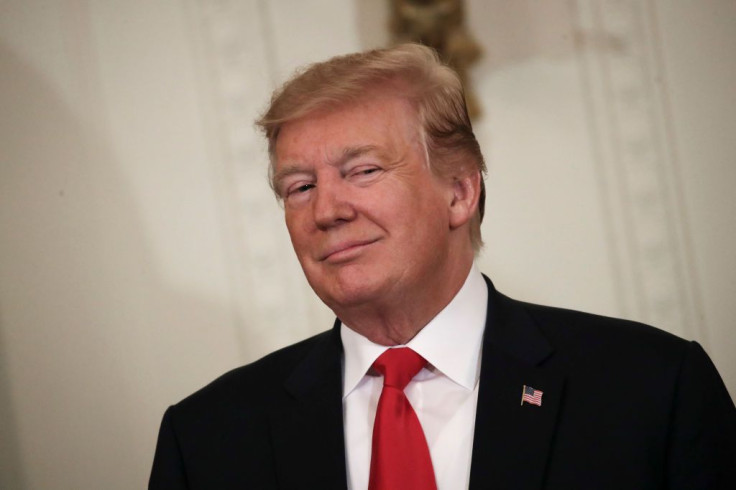US-China Trade War Will Get Worse And Last Longer, Analysts Say

Awash in a sea of red for most of the week, Wall Street is slowly coming to terms with the awful truth Trump’s trade war against China is bound to get worse and last far longer than even the pessimists predicted.
The tide of red continued Thursday with the Dow falling 286 points, or 1.1 percent, to 25,490.47 on fears Trump’s trade war will put a brake on global growth and hurt corporate profits in a time of economic expansion. The Dow recovered slightly to end Thursday but was down nearly 450 points at one point. The S&P 500 fell 1.2 percent, while the NASDAQ Composite lost 1.6 percent.
As might have been expected, China-sensitive stocks like Apple, Boeing, and Nvidia took a beating. Trade war fears also ignited a 6 percent plunge in oil prices, which was crude's worst day since Dec. 24, 2018.
Wall Street firms now seem resigned to the unnerving reality Trump will follow through on his threat to impose a 25 percent tariff on all remaining U.S. imports from China. It previously warned this massive escalation by Trump will ignite an all-out trade war few imagined could come to pass.
U.S. GDP growth is expected to slow by 0.3 percentage points from late 2019 into 2020 because of the trade war, estimates Nomura. It’s now certain Trump’s new 25 percent tariffs will stoke inflation as these will impact all consumer goods imported from China, said Nomura.
“We now think it is more likely than not that the Trump administration will move ahead with the final tranche of tariffs targeting roughly $300bn in imports from China at a 25 percent rate,” wrote Lewis Alexander, Nomura’s chief U.S. economist.
“Our baseline scenario assumes that the new tariffs go into effect at some point before end-2019, most likely in Q3 after a meeting between Presidents Trump and Xi at the G-20 in late June.”
Goldman Sachs and Bank of America are issuing pessimistic warnings similar to Nomura’s and are also warning the trade war will get worse.
Goldman Sachs said it’s still hoping for a trade deal, but if there isn’t one, the hit to the U.S. and Chinese economies will be greater and inflation will definitely rise.
“While we still think an agreement is more likely than not, it has become a close call and without additional signs of progress over the next few weeks, implementation of the next round of tariffs on $300 billion of imports from China could easily become the base case,” wrote Goldman’s economists.
Goldman sees a trade war escalation with an across-the-board 25 percent tariff on all imports from China as increasing U.S. core PCE inflation by 0.6 percentage point compared to the current 0.2 percentage point boost.
“Our model says that an across-the-board 25 percent tariff on China with a limited amount of retaliation would hit US GDP by 0.5 percent and Chinese GDP by 0.8 percent, all over a three-year period,” wrote Goldman’s economists.
Other chilling indicators of a coming slowdown: bond prices are rising while PMI data reveals a slowdown in services and manufacturing activity in both the U.S. and Europe. The U.S. PMI data was particularly unnerving, showing as it did the weakest rise in new business since the series began in October 2009.
© Copyright IBTimes 2024. All rights reserved.




















